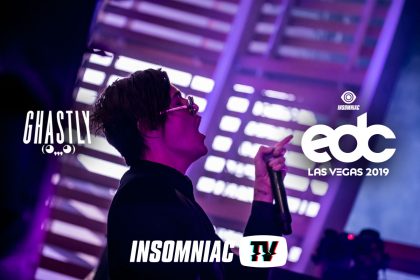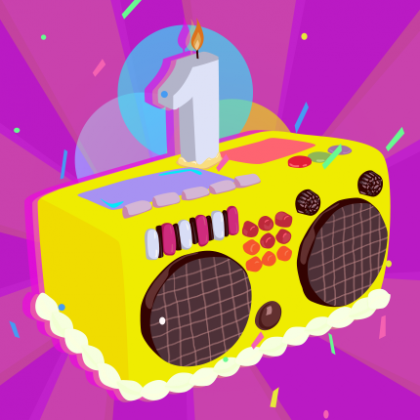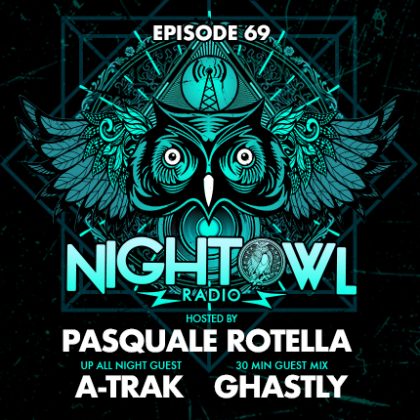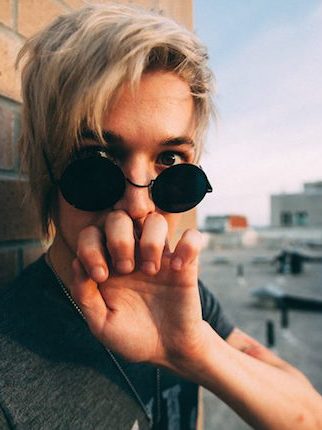The Grim and Gory Details of Ghastly’s Ballsy Rise
A lot of people have assumed that Los Angeles bass producer Ghastly named himself after the ghost-type Pokémon, but that’s not really true.
“I wish I did now, that’s what everyone thinks,” Ghastly’s David Lee Crow said. Truly, it’s a darker story than pet monsters.
“Those who know me know it’s just because of the kind of persona I am,” he says. “As nice as I may be, I’m a little bit abominable and a little bit atrocious in my personal decisions and lifestyle.”
He’s not throwing himself under the bus. In reality, Crow is a super nice dude. He just admits to putting himself through hell and “doing the things other people won’t.” But that “go and get it at any cost” attitude is what got him from a goat farm in Arizona to living out of a van in Los Angeles and eventually becoming an internationally traveling DJ, appearing on tracks with Jauz, Mija and Lil Jon and being featured as one of our Essential Artists. We just had to call him up and learn more.
Is life in L.A. better than life on the goat farm?
I like them both for different reasons. Goat farm life is good for getting away from the insanity that’s out here, but they’re both essential. I love to be a part of the whole music scene, but sometimes it’s nice to just go outside, just hear a goat, and nothing after that—no sirens, no people, no traffic.
What was it like growing up?
Originally, we lived on a farm with about 650 cows, and that was actually a farm a lot of my friends would take field trips on. Even at a young age, I was entertaining people. Kids would come to the farm, and I’d bring them into my house, have little dance parties when I was like eight. My parents always knew something was wrong with me; they just didn’t know it would actually help me out in the long run. It was nice growing up in that lifestyle. It made me appreciate the city life that much more.
When you moved, was it rushed? Why were you living out of a van?
Times were tough. The economy was still really bad, and my parents were unable to finance me. I just put all my stuff in a van and did it the best way that I could. I didn’t have enough money to get an apartment, but I knew I had to get into the area and move things forward. For about three months, I was fending myself off from the homeless people, thieves, making music in parking lots, taking showers in public bathrooms, waking up on the beach as much as I could, usually with a beer bottle in my hand to suppress the loneliness. I didn’t know anyone. I didn’t have any friends or family. Then I got a job at American Apparel, and I was like “Oh yeah, I did it!”—just because I’d have some money coming in. But then American Apparel fired me for being homeless.
How long did that take?
I worked at American Apparel for about two months before they found out I was living in my van and kicked me out. They were like, “We can’t have someone homeless working on our floor.”
“Six months of working with goat hay and making goat cheese and having no one around for miles and miles definitely makes you realize what you did wrong…Hard work pays off for sure.”
Clearly, you needed a job.
Yeah, they’re evil. We always yell at homeless people, “Get a job”; I got one, and they’re like, you can’t work here! I got fired from pretty much every day job I’ve ever had. I’m a terrible employee. I’m only good for working in music. Everything else is just terrible.
How did you come to be a resident at Exchange?
After about two and a half years of being out here, I went broke and lost everything again, went back to square one, and had to move back to the farm again. For six months, I was working my ass off and would tell myself, “The next time I go out there, I’m going to fucking do it right.” I came back out to L.A. one more time to give it one more shot. I didn’t party as much. I cut back on all that and started focusing. I saw that [Exchange] was looking for promoters. I became a promoter; then I worked my way to opening in their gallery room, to finally being able to open on their main stage. They liked me enough to become a Bassrush resident. But I’m not playing there as much anymore, because I’m needed in other parts of the world now.
There’s an idea that people in the scene party a lot, but it’s important to note that those who really succeed are more focused on hard work than partying.
I think I was persuaded by that thought when I first tried, because that’s all I was doing. If there was any small bit of good news, I would use that as an excuse to get obliterated drunk and completely waste my brain cells. Then that one tiny bit of good news might fall through, so I’d go, “Oh, now I have to drink off the pain.” It was a vicious cycle that led to me having no money, no home, and having to move back to the farm. Six months of working with goat hay and making goat cheese and having no one around for miles and miles definitely makes you realize what you did wrong. For me, it was partying too much. When I came back the second time around, I pulled back real hard on all that. If I wasn’t working at the restaurant that I was at, I was making music, and that was it. I had maybe one free day every two weeks, but after that much commitment, it started actually pulling through. Hard work pays off for sure, every time.
You’ve really learned first-hand what it means to keep going.
I’ve had quite a few people reach out to me saying how they’re having struggles in their life, and what they’ve read from me has helped them move forward. That’s exactly why I did it the way I did: to show people that there’s no end until you give up.
Follow Ghastly on Facebook | Twitter






